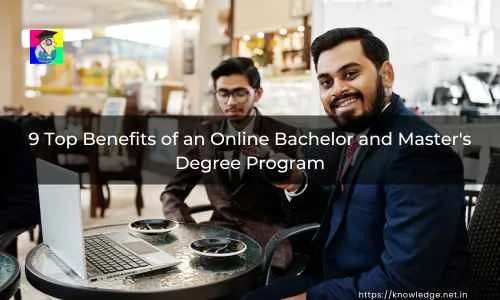Can a Distance Education Graduate Pursue an MBA?

In today's digital age, distance education has become increasingly popular as a flexible alternative to traditional on-campus learning. With the advancements in technology, students now have the opportunity to acquire knowledge and earn degrees from reputable institutions without being physically present in a classroom.
However, when it comes to pursuing a Master of Business Administration (MBA), many distance education graduates may wonder if their educational background will hinder their chances of being accepted into a prestigious MBA program. In this blog, we will explore whether a distance education graduate can indeed pursue an MBA and discuss the advantages and challenges they may face along the way.
The Growing Popularity of Distance Education: Distance education, also known as online learning or e-learning, has witnessed a significant surge in popularity in recent years. This mode of education allows students to study remotely, access course materials online, and interact with professors and fellow students through virtual platforms. It offers flexibility, convenience, and accessibility to individuals who may have other commitments such as work or family responsibilities.
Accreditation and Recognition: One of the key concerns for distance education graduates looking to pursue an MBA is the accreditation and recognition of their degree. It is crucial to ensure that the distance education program from which they graduated is accredited by a recognized accrediting body. Accreditation ensures that the program meets certain quality standards and is recognized by employers and academic institutions. Many reputable universities and business schools now offer online MBA programs, which further validate the legitimacy and acceptance of distance education degrees.
Admission Requirements: When it comes to MBA admissions, universities typically evaluate candidates based on various factors, such as undergraduate academic performance, work experience, recommendation letters, and standardized test scores (such as the GMAT or GRE). While distance education graduates may have a different educational background than traditional on-campus students, they can still meet the admission requirements by showcasing their academic achievements, professional experience, and any additional certifications or qualifications they have obtained during their distance learning journey.
Professional Experience: Distance education graduates often have an advantage when it comes to demonstrating practical experience. Many students pursuing distance education programs do so while working full-time or gaining valuable experience in their respective fields. This practical experience can be highly valued by MBA programs, as it brings real-world perspectives into the classroom and enriches the learning environment. Distance education graduates can leverage their work experience to showcase their skills, leadership abilities, and industry knowledge, thereby enhancing their chances of being accepted into an MBA program.
Networking Opportunities: One aspect often associated with traditional on-campus MBA programs is the opportunity to build a strong network with peers, faculty, and industry professionals. While distance education programs may lack face-to-face interactions, they often provide virtual networking opportunities through discussion forums, virtual meetings, and alumni networks. Distance education graduates can actively participate in these virtual communities, engage in discussions, and connect with fellow students and alumni to expand their professional network.
Challenges and Self-Discipline: Distance education requires a high level of self-discipline and time management skills. Without the structure and regular face-to-face interactions of a traditional classroom, distance education graduates must be self-motivated and organized to succeed in an MBA program. Balancing work, family, and studies can be demanding, and individuals pursuing an MBA through distance education should be prepared to overcome these challenges and stay committed to their academic goals.
Recognition in the Job Market: One concern that distance education graduates may have is whether their MBA degree obtained through distance learning will be recognized and valued by employers. However, as the popularity of online education continues to rise, the perception of distance education degrees has shifted. Many employers now recognize the value and rigor of online MBA programs, especially if they are offered by reputable institutions. It is essential for distance education graduates to highlight the skills, knowledge, and achievements gained during their MBA program when seeking employment opportunities.
In conclusion, a distance education graduate can certainly pursue an MBA and succeed in the competitive business world. Accredited online MBA programs, coupled with professional experience and a strong work ethic, can open doors to rewarding career opportunities. While distance education may present unique challenges, self-discipline, time management, and active networking can help distance education graduates thrive in an MBA program. As the acceptance and recognition of online education continue to grow, distance education graduates can
confidently embark on their MBA journey, confident in their ability to excel and make a significant impact in the business realm.
Discover the limitless possibilities for distance education graduates pursuing an MBA and share your thoughts in the comments below👇!
















